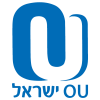Jerusalem, July 23:
An estimated 30,000 Israelis from all over the country paid their respects to Max Steinberg ז”ל who was buried in Jerusalem’s Mt. Herzl military cemetery today. He was 24 when he was killed in action in Gaza on Shabbat, July 19. He was proud to be a sharpshooter in the Golani Brigade.
Most of the crowd did not know Steinberg. They came because someone sent them an email or they saw something on Facebook or in their newspaper. Such is the power of social media. Such is the respect Israelis have for lone soldiers – like Steinberg – who come to Israel to serve in the IDF. According to the Friends of the IDF there are an estimated 2,800 lone soldiers. About 950 join annually.
We stood in the hot sun for more than an hour and a half.
Stuart and Jake Steinberg, Max’s father and brother said Kaddish and thousands of people answered “Amen.” In one voice. As one community. As one people.
“You came to Israel because you wanted to contribute,” one of his commanders said. “Max, you taught us what Zionism is. You taught us about Ahavat Yisrael.”
Stuart and Evie Steinberg, Max’s parents, spoke about their son’s life. “Thank you for honoring our son,” his father said. “When people ask me if we have any regrets, my answer is an unequivocal ‘no,’” he said.
They described his Birthright trip in June 2012, which he took with his brother, Jake, and sister, Paige, as “life changing.” This was the first trip to Israel for the two brothers and their sister. The parents arrived in Israel for the first time for their son’s funeral.
Stuart Steinberg recalled Max telling him when he returned from his Birthright experience that he thought Israel was a beautiful country, but he was “most attracted by the people.”
The last time Max spoke to his parents was at 4:00 a.m. PDT last Shabbat. His unit had been in an accident and several of the soldiers were hospitalized. Max told his parents that he hurt his back but was going back “in” to Gaza.
The last thing he said to his mother was, “I’m not scared for me. I’m scared for you.”
On Sunday morning, July 20, three representatives of the Israeli consulate in Los Angeles came to tell them of their son’s death. “We originally wanted him buried in the US,” Evie Steinberg said. “But we decided he should be buried here, where the people of Israel will take care of him.”
Max was a fan of reggae music. Both his sister, Paige, and his brother, Jake, quoted some of their late brother’s favorite lines.
“You will always be a hero to me,” Paige said. “I’m blessed to have an older brother like you.” Then she continued, “As I talk to you now . . . I already know how deeply I miss you.”
The last thing he said to her: “Don’t worry. Be happy.”
Jake said that “Max would be moved to see how he is being honored today.” He called Max “my hero and role model.”
He quoted Bob Marley in reference to his brother: “Live for yourself and you will live in vain. Live for others, and you will live again.”
Thousands of people heard these very personal insights into a person they never knew. But it didn’t matter. His family spoke in English. That didn’t matter either. Thousands of people stood in silence. Out of respect.
Michael Oren, the former Israel ambassador to the US, and himself a former lone soldier, said that while he didn’t know Max, from hearing the eulogies, “I feel that I know his heart. Everyone on this hill knows his heart.”
Dan Shapiro, the US ambassador to Israel said that “it is an honor for our lives to intersect with his.” He continued: “Your story ended too soon. Now you’re buried among other Israeli heroes.”
Rabbi Dov Lipman, a member of the Knesset and an American oleh said that one of Max’s friends said that what sparked him to come back to Israel was when he visited Mt. Herzl on his first trip.
Rabbi Lipman also didn’t know Max Steinberg. But he said he had learned that Max was the “ultimate giver.” He also said that “Max is a hero. He died so that our children can live without fear.”
He told the Steinbergs that they had “raised a hero.” He told them that their son was a “symbol of a new hero who rekindled the Zionist spirit.”
One of the final speakers was Jerusalem Mayor Nir Barkat. He pointed out that around Max’s final resting place is a soldier whose family came from Morocco, as well as a former Ethiopian and a former Russian. And now Max joined them.
“Yesterday you told me that you don’t have any friends here,” the mayor said to the family. “Look around you. You have 30,000 friends here today. With boys like Max, we’re unbeatable,” he said. “We’ll never forget the soldiers on this mountain.”
And then, after the final prayers were said, as the crowd was dispersing, HaTikvah was sung by thousands of people on a hillside in Jerusalem that has too many graves.
